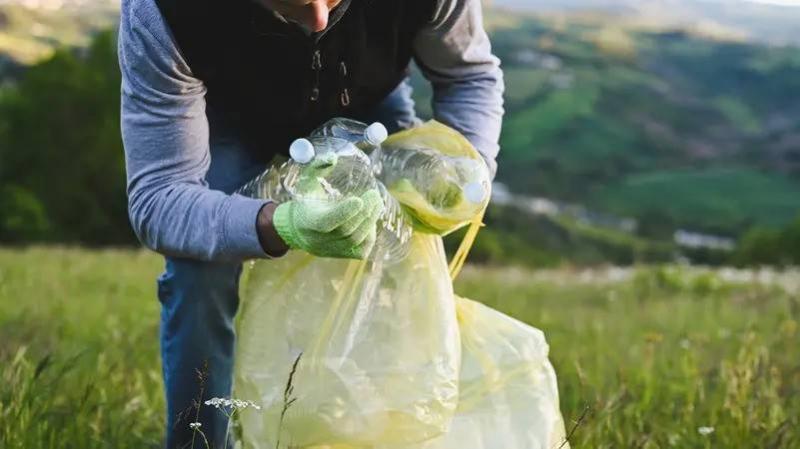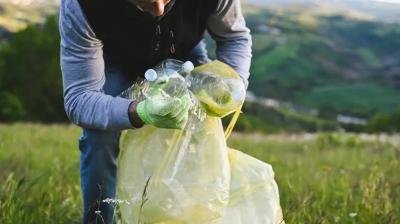A new type of plastic that does not break down into potentially cancer-causing microplastics may offer a solution to the rising levels of toxic materials in food, water, and bodies. Researchers at the University of California have developed a plant-based polymer, also known as bioplastic, made from algae, and found that 97% of it biodegrades in landfills over 200 days, according to the British "Daily Mail."
The new innovation was compared to other types of plastic, revealing that only 35% of traditional plastic decomposes in the same timeframe. Meanwhile, microplastics, tiny fragments of regular plastic products found in arteries, lungs, and placentas, can take between 100 to 1,000 years to decompose.
Michael Burkardt, a professor of chemistry and biochemistry at the University of California, San Diego, and a co-researcher of the study, stated that as the implications of microplastics became clearer, researchers sought to find alternatives to existing materials and ensure that these alternatives would biodegrade by the end of their lifecycle, rather than accumulate in the environment.
Microplastics have gained considerable attention recently due to their prevalence in everyday life. These small particles have been found in almost every part of the world, from the deepest spot on the planet, the Mariana Trench, to the summit of Mount Everest.
In terms of biodegradability, the research team compared algae-based microplastics with petroleum-based microplastics using a water flotation method. Since plastics float, they can be easily removed from the water's surface. Researchers examined both types of plastics after periods ranging from 90 to 200 days, and at the end of the tests, nearly all petroleum-based microplastics were recovered.
In contrast, researchers only retrieved 32% of plant-based microplastics after 90 days and 3% after 200 days, indicating that 97% of the tested material had biodegraded. The final step involved detecting monomers, the small molecules that make up plastic, to verify that the polymer had decomposed back into the original plant materials used for its production.
Co-researcher Stephen Mayfield, a professor at the College of Biological Sciences, noted, "This material is the first plastic proven not to produce microplastics as we use it," adding that it represents more than just a sustainable solution for the end-of-life product cycle and crowded landfills. "It is, in fact, a plastic that will not make living beings sick."
This discovery is a significant step toward eliminating the amount of toxic microplastics that could cause heart attacks, certain cancers, fertility issues, and dementia. Some researchers and public health experts have expressed concerns that exposure to microplastics may lead to low-birth-weight infants. Recent studies have found that a typical liter of bottled water purchased from stores contains more than 240,000 pieces of nanoplastic, while most meats and plant-based alternatives contain small plastics linked to cancer.
Scientists have warned that transitioning to manufacturing the new material will take time since current manufacturing equipment is designed solely for traditional plastics. However, Burkardt explained that when the research team began the study, they were told, "It's impossible, but what has been achieved so far proves that there is a different reality."




